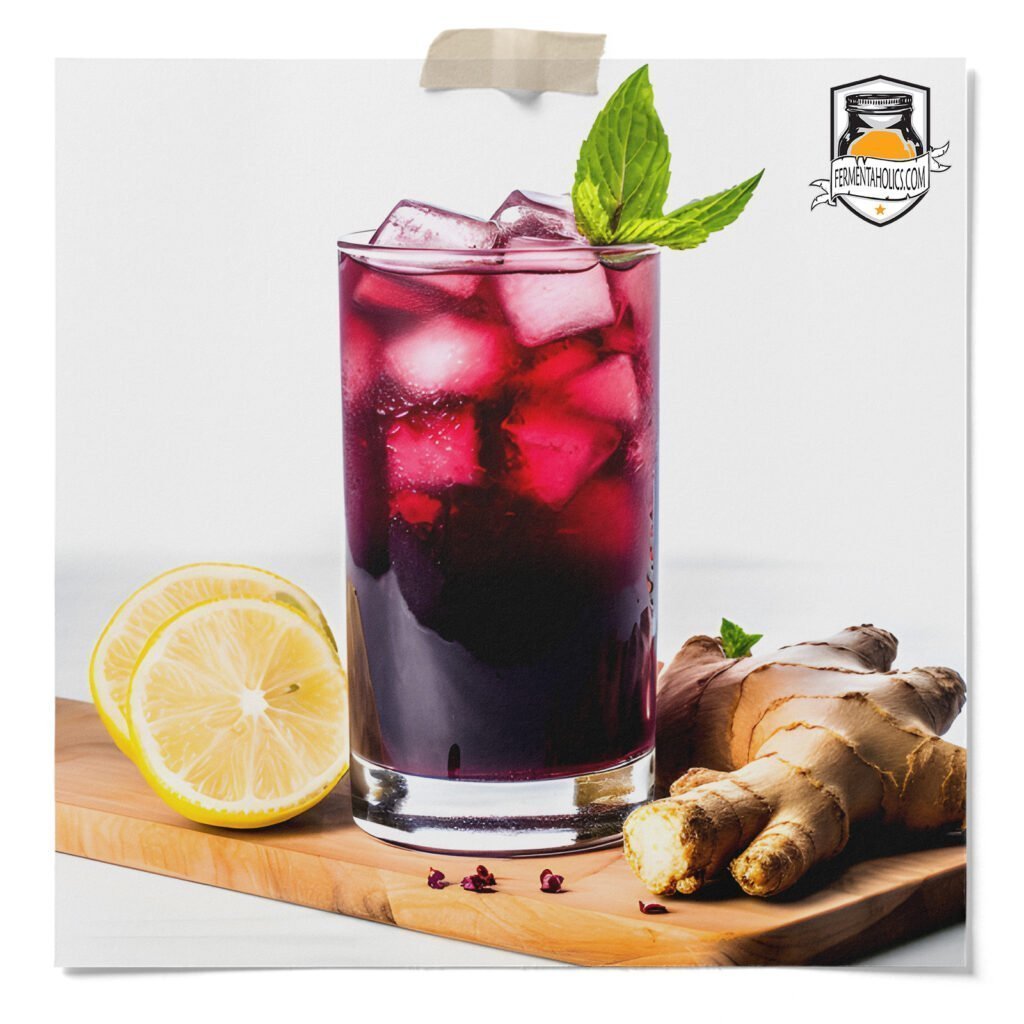
Blueberries, like most berries, are bursting with both sweet and tart flavors. The blueberries’ acidity harmonizes with the kombucha’s tartness, and then the sweetness kicks in to balance it out. In that same spirit of building flavor, ginger brings a spicy bite that provides sophistication and depth. That’s right; this kombucha is sophisticated. Aannd, you are what you eat, right?
I love having this kombucha on hand. It makes a great mocktail served over ice with a sprig of mint for a garnish. Or if it’s your speed, splash some tequila in there and a squeeze of lime juice!

It’s important to note that brewing homemade kombucha is almost always a two-step fermentation process. Brewing kombucha is only a one-step process for those who prefer an unflavored flat kombucha. Otherwise, the steps consist of a primary fermentation and secondary fermentation.
Since this recipe is for the secondary fermentation, to make this recipe, you’ll need to have kombucha that has finished the primary fermentation and ready to bottle.
This recipe makes one 16 fluid ounce bottle. For a 1-gallon batch, make 7 16 ounce bottles of kombucha or times the ingredients by 7. Before beginning this recipe, you will want to:
20
minutes2-10 Days
This blueberry ginger kombucha recipe is for one 16 fluid ounce bottle. For a gallon batch, make seven bottles. To scale this recipe to a gallon batch, multiply the ingredients by seven or toggle the serving size up to seven above. Before bottling your kombucha, remove the SCOBY pellicle along with 12-16 ounces of kombucha starter tea from your brew, and reserve for your next batch.
16 Oz Kombucha from a completed primary fermentation.
1/4 Cup Fresh of Frozen Blueberries (thaw first if using frozen)
1 TBSP Diced Candied Ginger
16 Oz Swing Top Bottles
Blender
Place blueberries in a blender with enough kombucha to help the blender work, about 1/2 cup, and blend into a puree.
Using a funnel, pour the blueberry puree into an empty bottle. Add in candied ginger.
Fill each bottle with kombucha, leaving about 1 to 2 inches of head-space. Tightly place the caps on each bottle.
Keep bottles at room temperature for 2-10 days; it will carbonate faster at higher temperatures and slower when cold.
Burp the bottles as necessary to release excess pressure. This is done by removing the cap to allow built-up pressure to escape then placing the cap back on.
Chill in the refrigerator once you’re happy with the carbonation levels. Based on preference, you can serve as is or strain before drinking.

